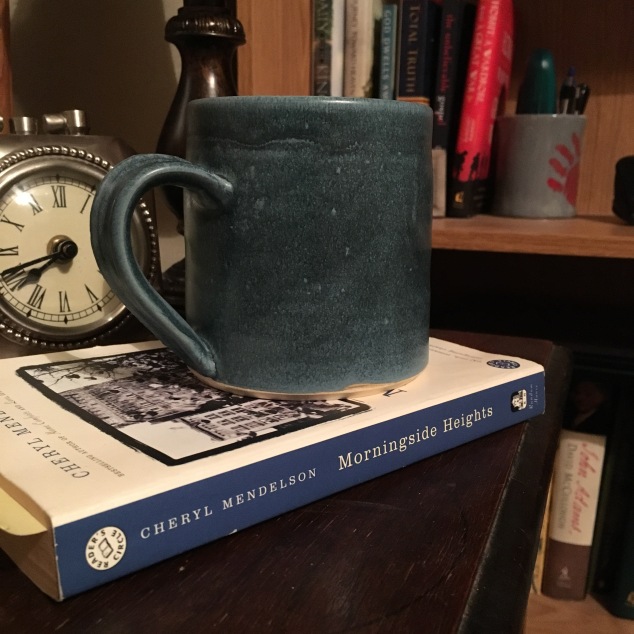The subtitle to this tiny but thoughtful volume is “Laundry, Liturgy, and ‘Women’s Work.'” How is that for provocative?
This book, about a worshipful posture toward everyday living, was a timely read for me as I gear back up for a new school year and a plate full of quotidian opportunities!

Here were some of my favorite nuggets:
On being too busy for daily worship:
“Workaholism is the opposite of humility…when evening comes, I am so exhausted that vespers has become impossible. It is as if I have taken the world’s weight on my shoulders and am too greedy, and too foolish, to surrender it to God…
“I have come to believe that ween we despair of praise, when the owner of creation and our place in it are lost to us, it’s often because we’ve lost sight of our true role as creatures–we have tried to do too much, pretending to be in such control of things that we are indispensable. It’s a hedge against mortality and, if you’re like me, you take a kind of comfort in being busy. The danger is that we will come to feel too useful, so full of purpose and the necessity of fulfilling obligations that we lose sigh too God’s play with creation, and with ourselves.”
On the connection between liturgy and housework:
“Like liturgy, the work of cleaning draws much of its meaning and value from repetition, from the fact that it is never completed, but only set aside until the next day. Both liturgy and what is euphemistically called ‘domestic’ work also have an intense relation with the present moment, a kind of faith in the present that fosters hope and makes life seem possible in the day-to-day.”
On holiness in everyday life:
“I have come to believe that the true mystics of the quotidian are not those who contemplate holiness in isolation, reaching godlike illumination in serene silence, but those who manage to find God in a life filled with noise, the demands of other people and relentless daily duties that can consume the self…
“If they are wise, [the busy saint] will treasure the rare moments of solitude and silence that come their way, and use them not to escape, to distract themselves with television and the like. Instead, they listen for a sign of God’s presence and they open their hearts toward prayer.”
In summary:
“Laundry, liturgy, and women’s work all serve to ground us in the world, and they need not grind us down…
“Both worship and housework often seem perfunctory. And both, by the grace of God, may be anything but. At its Latin root, perfunctory means ‘to get through with,’ and we can easily see how liturgy, laundry, and what has traditionally been conceived as ‘women’s work’ can be done in that indifferent spirit. But the joke is on us: what we think we are only ‘getting through’ has the power to change us, just as we have the power to transform what seems meaningless–the endless repetitions of a litany of the motions of vacuuming a floor. What we dread as mindless activity can free us, mind and heart, for the workings of the Holy Spirit.”





